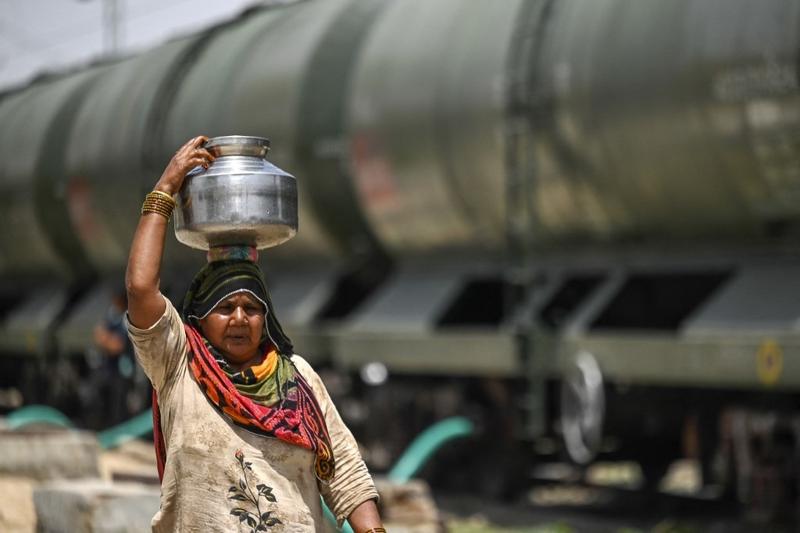- Web
- Feb 20, 2026
Indian heatwave exposes a cooling challenge for fresh food

NEW DELHI: The withering heatwave hitting northern India has dealt a double blow to market fruit and vegetable sellers – more of their produce is spoilt, while buyers stay at home and ordering online.
Sahil, in his mid-30s, migrated to Delhi a decade ago and runs a roadside stall selling vegetables. This summer has “broken my back”, he said.
Sahil buys vegetables every day from a nearby wholesale market, but much of the produce is already in bad shape.
“The air is so hot, that the vegetables are drying up and changing their natural colour in just a couple of hours after being on display,” he said. “And you can see for yourself, there are no customers.”
Daytime temperatures have hovered above 40 degrees Celsius (104°F) since mid-May and officials say the heatwave has killed more than 100 people and 40,000 people have suffered heatstroke.
Sahil said his income had nearly halved in the past two months from around 15,000 Indian rupees ($180) a month to 8,000.
Mohammed Akhlaq, trying to keep his coconuts out of the sun at a market near Delhi, said business had never been so bad.
“In 40 years of life, I have never seen such a harsh summer,” said Akhlaq.
He said he had lost between 30 per cent and 40 per cent of his produce to the heat in the last two months. Coupled with customers staying indoors and ordering online, Akhlaq also said his income had halved.
It is the third straight year that India has grappled with severe heatwaves and scientists say global warming is making such heatwaves more intense, frequent and widespread.
The challenge for India is to ensure its food security and protect the livelihoods of people in the agricultural sector.
LACK OF COLD STORAGE HITS SMALL FARMERS, VENDORS
While Indian fruit and vegetable production has reached record highs, a government study said supply chain cold storage infrastructure was at a “nascent stage” and as much as a quarter of fruit and vegetables were spoiled.
Extreme heat compounds the problem in two ways, said Aditi Mukherji, director of Climate Change Adaptation and Mitigation Impact Action Platform of CGIAR, a global partnership of international organisations researching food security.
“One by reducing crop output itself, as most crops don’t do well in such extreme heat, and second, for perishable products like fruits, vegetables and dairy products, a lack of cold chains,” Mukherji said.
The shortage of cold storage throughout the supply chain increases pressure to get produce to consumers quickly.
The impact is felt particularly by the roughly 5 million small vendors and hawkers in India who are mostly unable to keep produce cool and have to work in the extreme heat.
About 80% of Delhi street vendors said they had seen fewer customers, and half said their income had declined due to the heat, according to a survey published this month by Greenpeace India and the National Hawkers Federation.
COOL SOLUTIONS NEEDED
The government is providing some $100 billion to build integrated cold storage infrastructure from farm to retail, but the scheme is focused on building big storage capacity.
In a country where most of the supply is met by small vendors and hawkers, experts say there is a lack of small-scale cold chain solutions focused on helping them.
“Unfortunately, no ready-made solution exists for protecting small farmers or vendors,” Mukherji said.
However, there are some promising small-scale refrigeration innovations on the market.
Vikash Jha, a graduate of the Indian Institute of Technology in Mumbai, has invented a low-cost small cooler that works without electricity or gas but uses water and ventilation to keep the contents between 10C and 21C, increasing the shelf life of foods. Jha said he had sold 1,500 units across India.
“Government policies are promoting large-scale cold storage that is capital and energy intensive, increasing the burden on India’s already high climate heating emissions,” Jha said, adding solutions were needed to help small farmers and vendors.
Iran election: can voters deliver an upset to hard-liners?
Fruit seller Akhlaq said he did not know what he could do to protect his business.
“If this is how it is going to be, then I fear for the future of my children,” he said. “Someone should help us.”





